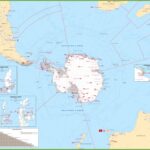Let’s speak of Italy, once upon the time, also because in the last year international comments were unbelievable favourable, not so frequent event. Italy has in common with other old European powers a progressive demographic decline, so an ageing population, 25 per cent more than 65 years old, obsolete University structures and in general poor educational system, state health management weakening, technological gaps with world leaders, low economic performances and consequently social welfare reducing. Then Italy has peculiar industrial structure, with 98 per cent of firm with less than 50 employees, very Japanese type, but without the integration with big international companies or banking like Japan. Culture is quite traditionally humanistic oriented, and generally all the families and firms behaviour is based on relationships, which give few possibilities to self development and merit recognition. The technological gap in digital economy and society can be estimated in more than twenty years. State has a large presence in economy, being the major companies state owned in energy, defence, steel, shipbuilding, as an old heritage of the closed economy before European Union. So the final results are a static society where the children do the same profession of fathers protecting them, low level of internationalisation, feudal capitalism, based on heritage from families, and consequently a yearly migration of about thousands top graduated from University to other countries, mainly in Europe. The “As is” trend can’t improve without radical change. The typical post war political culture has been to do nothing, letting the spontaneous dynamic forces go on and hoping in a hypothetical Europe becoming United States. Now the European drive can’t be so strong as after the war, so the theory of very famous Italian politician about the “external constraint” to improve internal accountability and productivity, is failing totally. In addition EU is asking military investments, whose absence was leveraging the economic development, as Gorbaciov was saying about the losers of the war Germany and Italy not having military budget to support.
So the present scenario can’t be pursued further, because its results are largely forecastable in total ruin, with less or more speed. The peculiar strong points of Italy are a diffused working and sacrifice culture for family defending, a total flexibility and adaptation to circumstances, a culture of beauty deriving from the twenty or more courts for which Italian were producing perfect and beautiful goods for person and house living. This was leading to a position strategy in the world looking for rich countries to offer them the best way of living. This approach needs always rich leading nations to commerce with, and these peculiarities took Italy in the fourth position in export to the most important and rich nations. In the previous century Italy was looking to Germany, than to USA and Japan, for the future it should concentrate on China needs, as the Chinese operating in Italy know very well. The abandoning of the cooperation with Chinese infrastructural projects has been a big mistake, also for our so near American partner, where 40 million Italian descendants contributed to the local development. This is the first and in my opinion most probable scenario for the next thirty years for Italy to recover and restart to try of remaining in the first 15 rich countries. Another scenario very old from the times of Roman Empire, is orienting Italy to Africa. “Te teneo Africa” was the Latin motto, and before the war and after, until Berlusconi government, the Mediterranean scenario that seems so facilitated from the geographic Italian positioning, was and is now also pursued. But Italy moving to Africa was always hindered by UK and France jealous of their privileged colonies. And Italian luxury and court oriented small firms more artisan than industrial, family owned, need rich and high civilised societies to sell their peculiar products. Of course should be possible to help African countries to grow, but leaving the Garda villas and not calling in Italy low level of African manpower, but going there and educating people and investing in local factories of domestic appliance and all the basic products really needed. Surely this could be a big success, but where are entrepreneurs and their son and daughter abandoning Portofino and Capri to live in Uganda, by the way beautiful but difficult? I experienced a long period of boarding a Consortium for African big infrastructural projects, also supported by the so called “Piano Mattei” with no way of beating Chinese competition in those fields. These are the main scenarios on the table, not considering any more an EU collective effort to survive between China and USA. The most rapidly Italy will be conscient of the new world, the most higher the possibilities of a new development.


